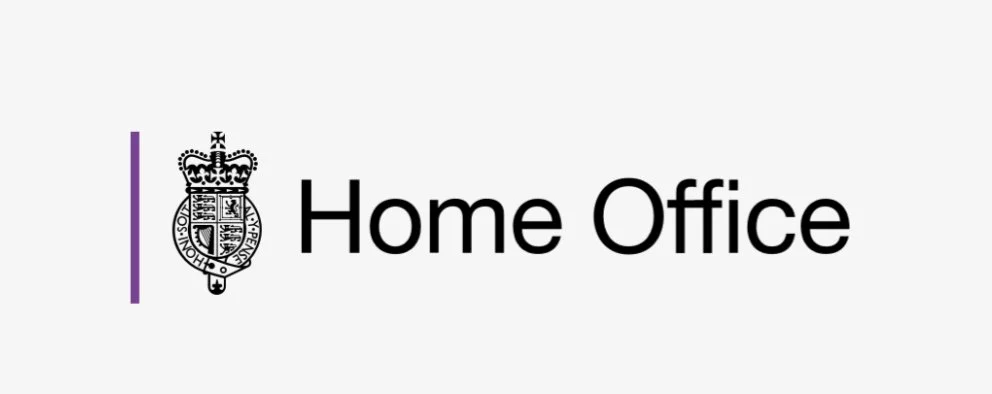NEWS
City Centre Company tackles increase in crime
Increased crime in Plymouth City Centre is being tackled head-on by the Plymouth City Centre Company as business concerns grow about the impact on trade. The City Centre Company has teamed up with Crimestoppers UK to set up a city centre action zone to raise awareness of the issues amongst businesses and customers and urge business owners, managers, staff and customers to report crime so that it can be effectively tackled.
Businesses have expressed their concerns for months about a big increase in retail crime, especially shoplifting, drug taking and anti-social behaviour.
The new initiative was launched at the Plymouth Methodist Central Hall with representatives from city centre businesses, the police, Plymouth Against Retail Crime (PARC), Plymouth City Council and Crimestoppers UK.
A new forum with the police and businesses and other interested groups will also be set up and the City Centre Company has also contacted the Police and Crime Commissioner, Alison Hernandez, to appeal for more city centre support.
Please make sure your business reports all crimes. The more intelligence we can give the police, the more support we will get.
The easiest way to report a crime is via the PARC App. This comes at no extra charge to city centre BID businesses. If you are not signed up to PARC, make sure you do so today. Email Steve.hughes@citycentrebid.co.uk for more information or to request a visit or talk to one of the PARC officers.
Or, if you are looking for extra security you can rent a Storenet radio for £9 a week which gives you instant access to the CCTV room, police and PARC officers.
Steve Hughes, chief executive of the Plymouth City Centre Company, said: “ The levels of crime and anti-social behaviour are becoming intolerable for our business owners, so this was an opportunity to bring everyone together to try to get more support and action. Our PARC officers and police do a brilliant job but it’s becoming overwhelming.
“We are determined to make the city centre safe and welcoming for everyone.”
Karen MacDonald, regional manager for Crimestoppers UK, said: “This initiative gives people the opportunity to report crime anonymously and we can then give the information to police to tackle this criminal behaviour.”
A new forum with the police and businesses and other interested groups will also be set up and the City Centre Company has also contacted the Police and Crime Commissioner, Alison Hernandez, to appeal for more city centre support.
Please make sure your business reports all crimes. The more intelligence we can give the police, the more support we will get.
Plymouth Against Retail Crime (PARC) App – Available to all City Centre BID Businesses
The easiest way to report a crime is via the PARC App. This comes at no extra charge to city centre BID businesses. If you are not signed up to PARC, make sure you do so today (PARC signup form attached)
Email Steve.hughes@citycentrebid.co.uk for more information or to request a visit or talk to one of the PARC officers.
Storenet Radio Offer
Or, if you are looking for extra security you can rent a Storenet radio for £9 a week which gives you instant access to the CCTV room, police and PARC officers.
ShopKind campaign
The ShopKind campaign is uniting the retail sector to tackle violence and abuse against shopworkers by asking people to ShopKind when in stores. ShopKind is backed by the Home Office. ShopKind aims to:- Encourage positive behaviours in shops Acknowledge the important role of shopworkers Highlight the scale and impact of violence and abuse against shopworkers If you have questions about the ShopKind campaign or would like to be added to the ShopKind Campaign mailing list, please contact William Vandeven, ACS Government Relations Director, via willem.vandeven@acs.org.uk
please visit https://nbcc.police.uk/business-support/shopkind/shopkind-webpage for more information
Home Office Launch Retail Crime Action Plan
The plan includes a police commitment to prioritise urgently attending the scene of shoplifting instances involving violence against a shop worker, where security guards have detained an offender or where attendance is needed to secure evidence. Police attendance will be assessed based on risk, and prolific or juvenile offenders will be treated with elevated priority. For full details click the link:
Home Office announced the launch of the Retail Crime Action Plan.
Banknote Checking Scheme News
This is our latest newsletter which has gone out to any of your members that have joined the Banknote Checking Scheme. Our Banknote Checking Scheme newsletter provides you with news and updates about banknotes and initiatives to tackle counterfeit banknotes. This newsletter is a reminder of best practice regarding security features when checking banknotes and find out why you should no longer accept Scottish or Northern Ireland paper notes. Criminals regularly attempt to create new counterfeit banknotes. For example, we are now seeing attempts to copy the UV feature on some counterfeit banknotes. It is important that we work together to support our communities by preventing them from entering circulation.On our polymer banknotes, the same security features appear on all denominations, making it easier to train those involved in transactions. Counterfeiters have tried to simulate some of the features, including the denomination number that can be seen under ultra-violet (UV) light. Therefore, the best way to protect your business and stop counterfeiters is to check your banknotes with two key security features: the hologram image change and the see-through windows. For businesses that want to continue using secondary security checks, such as UV, we recommend that this is done alongside at least one of the below primary checks, which should always include the hologram image change.
Hologram image change
Tilt the note from side to side. Check the words change between the value of the note, ‘Five’, ‘Ten’ ‘Twenty’ or ‘Fifty’ and ‘Pounds’.
This is the first check that we recommend you always use to check your banknotes.
Key security features
Best practice
On our polymer banknotes, the same security features appear on all denominations, making it easier to train those involved in transactions. Counterfeiters have tried to simulate some of the features, including the denomination number that can be seen under ultra-violet (UV) light. Therefore, the best way to protect your business and stop counterfeiters is to check your banknotes with two key security features: the hologram image change and the see-through windows. For businesses that want to continue using secondary security checks, such as UV, we recommend that this is done alongside at least one of the below primary checks, which should always include the hologram image change.
Hologram image change
Tilt the note from side to side. Check the words change between the value of the note, ‘Five’, ‘Ten’ ‘Twenty’ or ‘Fifty’ and ‘Pounds’.
This is the first check that we recommend you always use to check your banknotes.
See-through windows
Look at the metallic image over the window. Check that the foil is gold on the frontof the £5 and £10, gold and blue on the front of the £20, and gold and green on the front of the £50. The foil is silver on the back of all notes.
Look for a second, smaller window in the bottom corner of the £20 and £50 notes.
Other commonly used security features
Additional foil check
On the back of the notes, directly behind the silver crown on the front, there is a metallic foil patch. The £5 features a circular, green foil patch contains the word ‘BLENHEIM’. On the £10 note there is a book-shaped, copper foil patch with the letters ‘JA’. The £20 depicts a round, purple patch with the letter ‘T’. And the £50 contains a metallic, red foil patch containing the letter ‘AT’.
Ultraviolet number
Under a good-quality ultraviolet light, the value appears in bright red and green on the front of the notes, against a duller background. Counterfeit banknotes can sometimes show a simulation, so we do not advise relying on this as the only check that you do.
For more information
To see our security videos which show each security feature in-depth, including others not covered in this newsletter, please see here: https://www.youtube.com/watch?v=C7TKnjC15E8
For resources on Scottish and North Irish banknotes please see here: Association of Commercial Banknote Issuers (ACBI)
Resources for your business
How to check your banknotes: webpage
King Charles III banknotes
If you didn’t see our June newsletter, a reminder that our notes featuring a portrait of King Charles III on the front are expected to enter circulation by mid-2024. If your business uses, or is responsible for, any machines that accept, sort or check notes, you will need to plan for their adaptation to work with the new note designs. While we have not yet finalised the issue date for the King Charles III notes, based on the most likely timeline we ask that you complete your machine updates by the end of March 2024. In preparation, manufacturers will begin to release updates for you to install in your machines later this year. Please check with your manufacturers directly on their individual timelines as it may be some time later for certain machines.
Withdrawal of the last Scottish and Northern Ireland paper notes
You should now only receive polymer Scottish or Northern Irish banknotes as payment and not accept any paper notes, as the issuing banks have withdrawn the last remaining paper ones from circulation. The final paper notes, which were withdrawn on 29 September, were all Scottish paper £100 notes alongside all Northern Ireland paper £50 and paper £100 notes. All other denominations of paper notes were withdrawn previously as the issuers transitioned to polymer notes. Although many businesses will not have received these notes in recent years, it simplifies banknote checking as you should now refuse to take any UK paper notes.
Reaching 500!
The Banknote Checking Scheme has now reached over 500 supporters, covering almost 30,000 locations across the UK. A big thank you to everyone who has joined the Scheme. We also welcome our new Strategic Partners, the British Amusement Catering Trade Association, the Federation of Independent Retailers and the British Institute of Innkeeping. Preventing counterfeit notes from circulating is best done together, so the Strategic Partners play a vital role in informing businesses about our Scheme.
On our polymer banknotes, the same security features appear on all denominations, making it easier to train those involved in transactions. Counterfeiters have tried to simulate some of the features, including the denomination number that can be seen under ultra-violet (UV) light. Therefore, the best way to protect your business and stop counterfeiters is to check your banknotes with two key security features: the hologram image change and the see-through windows. For businesses that want to continue using secondary security checks, such as UV, we recommend that this is done alongside at least one of the below primary checks, which should always include the hologram image change.



